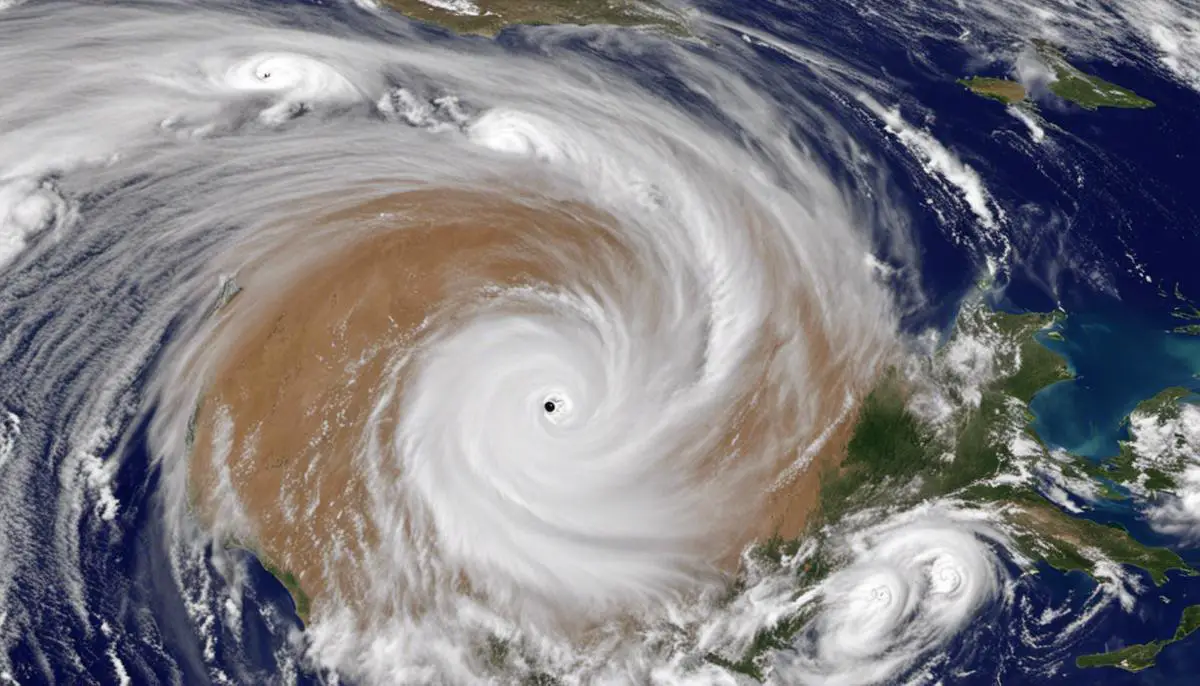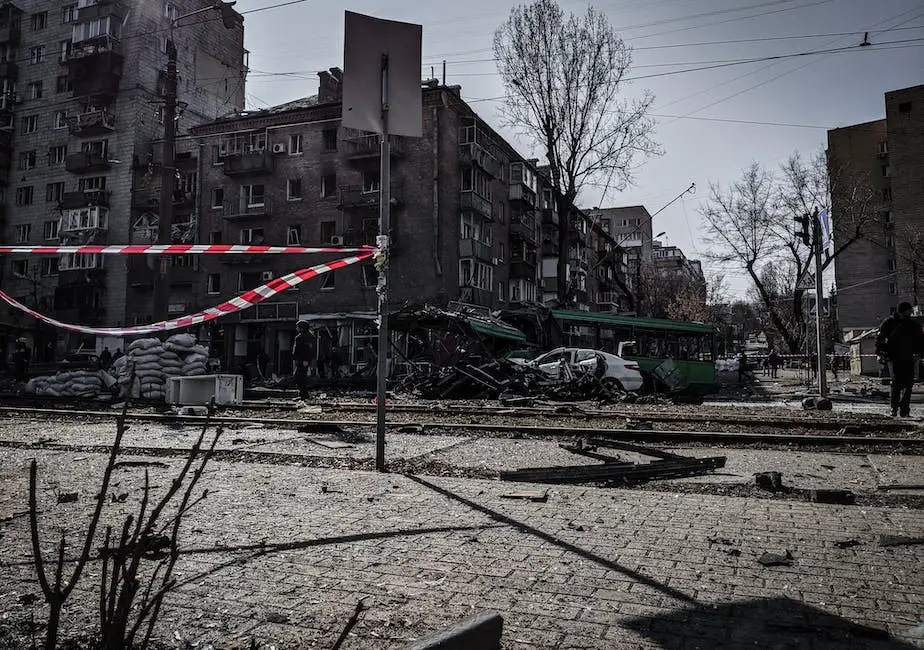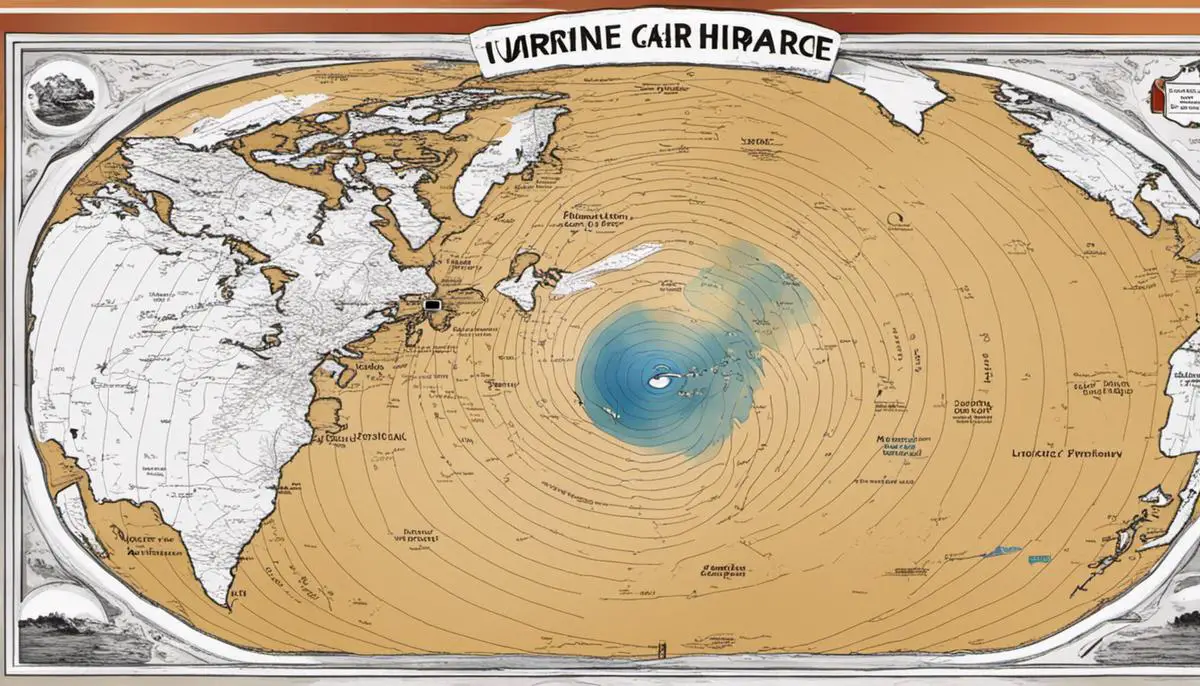In this increasingly warming world, where climate change asserts its unwelcome presence through a rise in the frequency and ferocity of natural disasters, understanding the ramifications of these events is pivotal. Hurricane Hilary serves as a striking example, creating more than just environmental or physical challenges; it engendered a profound impact on mental health. We delve into the intricate details of this calamity, the general interconnection between natural catastrophes and mental health, and the very real experiences of people whose lives were inexorably altered by this event. Furthermore, we explore the redemptive side of humanity through the support and resources available to navigate the mental health challenges in its aftermath.
Understanding Hurricane Hilary
Understanding Hurricane Hilary: An Overview
Hurricane Hilary was an intense tropical cyclone that formed in the Eastern Pacific Ocean in late July 2017. It moved parallel to the southwestern coast of Mexico, managing to avoid landfall. Despite its limited direct impact by not making landfall, it led to high surf and rip currents in portions of Southern California and Mexico.
Severity of Hurricane Hilary
At its peak strength, Hurricane Hilary reached category 2 strength, with maximum sustained winds of 100 knots and a minimum pressure of 970 millibars. Heavy rains and flooding were the primary physical adversities linked with this storm; however, its effects extended beyond pure physical trauma.
Mental Health Impacts of Hurricane Hilary
Although Hurricane Hilary did not make landfall, it is crucial to understand that the mental health impacts of hurricanes and other such natural disasters can be extensive and aren’t limited to physical damage or displacement.
The occurrence of a hurricane can trigger increased stress and anxiety among residents, regardless of a storm’s eventual course. As it happened with Hurricane Hilary, even though it didn’t make a landfall, the apprehension was enough to cause distress and mental health conditions among various sections of the population.
Post-Traumatic Stress Disorder (PTSD)
Post-Traumatic Stress Disorder, commonly known as PTSD, is often seen in the wake of hurricanes. This condition can be triggered by any frightening or violent event, such as a natural disaster. The threat of Hurricane Hilary may have led to PTSD in some people.
Depression and Anxiety
The anticipation of a massive hurricane can increase feelings of hopelessness and melancholy, contributing to the development or exacerbation of depression. Similarly, the uncertainty attached to the hurricane trajectory can escalate anxiety levels, already heightened due to local, geographical, and personal factors.
Societal and Economic Stressors
The societal and economic impacts also contribute to stress and other mental health issues. The threat of a hurricane disrupts not only personal routines and safety but societal and economic structures too. The economic losses, which included property damages, commodity price rise, and job uncertainty attributed to Hurricane Hilary, and similar storms also contribute to increased stress and anxiety among the affected populations.
How to Mitigate These Impacts?
Such potential mental health impacts necessitate early intervention and coping strategies to help affected individuals. Timely addressing mental health concerns could help mitigate long-term impacts. While the storm’s course cannot be controlled, the preparedness, including emergency plans and mental health first aid, could help communities better handle such difficult situations. In the case of Hurricane Hilary, local officials had access to counseling services to support potential distressed locals.
Long-term Consequences
Enduring extreme stressors, such as those caused by a hurricane, can have a profound and lasting impact on mental health. The aftermath of these traumatic times can hinder cognitive function, impede educational advancement, and impinge the overall life quality. As such, it is of great importance that we grasp the mental health implications of hurricanes, such as Hurricane Hilary, and take measures to address them.

Link Between Natural Disasters and Mental Health
The Correlation Between Natural Disasters and Mental Health
Psychologists and social scientists have invested significant research into understanding the psychological aftermath of natural disasters, establishing a firm connection between these occurrences and heightened mental health concerns. Events as catastrophic as hurricanes often set in motion a vast range of mental health complications by ushering in extremely distressing experiences like home displacement, death of loved ones, or property damage. The hardships endured during and following a disaster such as Hurricane Hilary set the stage for longstanding stress, anxiety, and unpredictability, paving the way for mental health disorders to manifest or worsen.
Impact of Hurricane Hilary on Mental Health
Hurricane Hilary, like other disastrous events, had a profound impact on mental health. Many individuals affected by the hurricane experienced acute stressors such as the threat to life or physical integrity – aspects known to result in psychological trauma. The hurricane also led to other acute stress reactions such as insomnia, depression, anxiety disorders, and post-traumatic stress disorder (PTSD). The traumatic event noticeably disrupted the sleep and mood regulation processes of the victims, causing seemingly never-ending cycles of distress.
Short-term and Long-term Impact of Hurricane Hilary
In the short term, Hurricane Hilary caused immense fear and panic among the population as homes were shattered and life was endangered. A wave of uncertainty and anxiety swept through causing detrimental effects like acute stress disorder and depression in a significant part of the population. Aspects such as higher rates of aggression, divorce, and substance abuse were reported in the affected areas.
In the long-term, many of the affected population witnessed more chronic mental health conditions, especially among those who had directly faced trauma or considerable loss. Long-lasting effects like PTSD and long-term anxiety disorders were reported years after the event. The continuous reminders of the traumatic event, coupled with stressors like financial struggles and rebuilding, kept the trauma alive and inflicted psychological distress that prolonged the mental health recovery process.
Preparation and Support: Key Defences Against Mental Impact of Natural Disasters
When facing natural disasters like Hurricane Hilary, it’s been seen that both thorough preparation and strong support networks can greatly minimize the negative effects on people’s mental health. Forging solid support structures, at a personal as well as community level, has a proven track record of providing significant help. Alongside mental health services—those set up pre-emptively as well as those responding to crises—these systems can bring down the psychological impact of these events. Despite our inability to prevent natural disasters, we can certainly prepare better for them and thereby lessen their mental health implications.

Real Stories of People Affected by Hurricane Hilary
Living Through Hurricane Hilary: The Experience of John and Jane Doe
A case in point are John and Jane Doe, a couple residing in a small coastal town, who suffered the direct impact of Hurricane Hilary. In the aftermath, they found themselves without a home, their property totally destroyed. They shared their sense of profound insecurity and displacement, and anxiety when contemplating forthcoming storms. Their account mirrors many others, signifying that the impact in terms of mental health of these natural disasters goes far beyond the immediate physical destruction.
Patterns of Post-traumatic Stress Disorder (PTSD)
Numerous individuals affected by Hurricane Hilary showed signs consistent with Post-traumatic Stress Disorder (PTSD). The high speed winds, substantial flooding, and extensive property destruction acted as triggers for traumatic memories. The prevalence of PTSD among these individuals underlines the extreme psychological trauma associated with such devastating natural disasters, further exacerbating the mental health crisis in affected regions.
The Children’s Story: Psychological Impact of Hurricane Hilary Among Children
Children who experienced the tumultuous hurricane reported symptoms of acute stress and adjustment disorder. Frightening events during the storm, such as evacuating their homes in the middle of the night, flooded schoolyards, or the loss of their favorite toys, induced these conditions. Numerous children experienced nightmares and sleep disorders indicative of trauma, which often also affects their academic performance and social interactions.
The Mental Health Assistance Gap Post-Hurricane Hilary
Despite the evident mental health toll in Hurricane Hilary’s aftermath, many survivors lament substantial gaps in services and supports. Mental health resources are rarely considered in disaster relief efforts. Unfortunately, counseling services and psycho-social supports are often underfunded or entirely overlooked in the clamor to provide food, water, shelter, and medical care. This lacuna underscores the pressing need to consider mental health resources as part of disaster response.
Factors Affecting Mental Health Outcomes After Hurricane Hilary
Some of the victims significantly affected by the hurricane found themselves severely depressed and anxious about the future. These feelings were further fueled by loss of employment, lack of insurance payout, or inadequate governmental support. The social-economic standing of the victims and their access to support networks played a crucial role in shaping their mental health outcomes. Those with less access to resources experienced elevated stress levels, depression, and anxiety disorders.
Long-term Psychological Ramifications
Hurricane Hilary has left permanent marks on the mental health of those affected. Even after several years, many survivors still struggle with distressing emotions like despair and terror. Constant stress, readjustment difficulties, continuous dwelling on the catastrophic event, and the challenge of piecing lives back together are common triggers for disorders like depression and anxiety. The ongoing nature of these issues highlight the exigency for persistent mental health assistance for the victims of hurricanes.

Post-Hurricane Mental Health Support and Resources
Psychological Aftermath of Hurricane Hilary
Hurricane Hilary’s impact goes beyond physical devastation. It has installed deep emotional and psychological wounds that linger long after the hurricane has subsided. Manifestations of Post Traumatic Stress Disorder (PTSD), anxiety, and depression can surface months or even years after the devastation. Struggling with the loss of homes, belongings, and sources of income is an additional burden that escalates psychological suffering.
Non-Profit Organizations Offering Support
There are a number of non-profit organizations stepping in to provide mental health support to the survivors of Hurricane Hilary. For instance, the American Red Cross offers disaster mental health services to those affected by natural disasters. The organization trained mental-health professionals provide emotional support, comfort, and assistance to disaster victims and their families.
Another non-profit, Project HOPE, has deployed a team of public health professionals to provide psychological first aid and emotional support to the hurricane victims. They also offer mental health and resiliency training to local professionals and community members, helping to build long-term mental health capacity.
Government-Led Initiatives
Governments have also taken significant steps to address the mental health impact of Hurricane Hilary. The Substance Abuse and Mental Health Services Administration (SAMHSA) provides a Disaster Distress Helpline, a 24/7, 365-day-a-year, national hotline dedicated to providing immediate crisis counseling for people who are experiencing emotional distress related to any natural or human-caused disaster. In addition, the Federal Emergency Management Agency (FEMA) has implemented a Crisis Counseling Assistance and Training Program which provides funding for short-term intervention to help disaster survivors understand their current situation and reactions, and guide them in reducing stress and providing emotional support.
Community-Led Support
Local communities play a crucial role in supporting each other after traumatic events like Hurricane Hilary. Many communities have set up informal support groups where survivors can share their experiences, fears, and frustrations. These community-led groups are often beneficial because they offer immediate and culturally sensitive support.
Furthermore, local mental health professionals, educators, and religious leaders often come together to create a network of support. Their familiarity with the community, its values, and its particularities can make the path to recovery a bit smoother for the hurricane victims. They also play a crucial role in identifying individuals who might need more specialized mental health aid.
Availability of Online Resources
Online resources can also be influential in providing mental health support. The Disaster Distress Helpline’s website, for instance, gives access to numerous resources related to disaster recovery, including publications, apps, and links to other helpful websites. The PTSD Foundation of America provides online education about PTSD and trauma, as well as online support through its website and social media.
Conclusion
In conclusion, the scale of mental health support needed in the aftermath of Hurricane Hilary is massive. However, the concerted efforts of non-profit organizations, government-led initiatives, community-led support groups, and accessible online resources can significantly help in providing the psychological aid and rehabilitation needed by the survivors.

While the physical restoration post-Hurricane Hilary may be the most visually striking, an equally vital, albeit invisible, reconstruction transpires within the minds and hearts of those affected. The stories of mental fortitude in the face of unimaginable trauma and the network of support that sprang into action provide a testament to the resilience of humanity. Recognizing and addressing the psychological impact of such events is paramount in both immediate relief work and long-term strategy for disaster response. The critical role of comprehensive mental health resources and support services in cultivating a sense of normalcy, healing and hope amidst the ruins cannot be overstated
![]()
